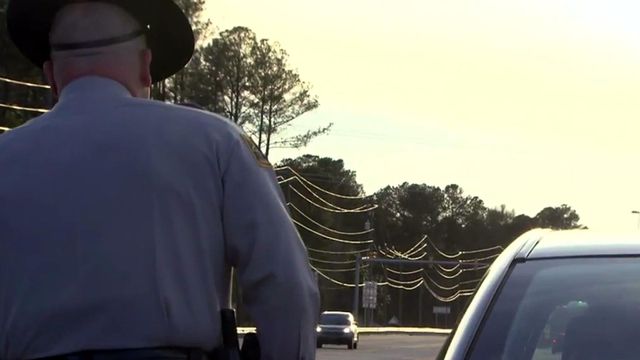Data show racial disparity in NC justice system in black and white
From police brutality and racial profiling to selective prosecution and unfair jury selection, people have complained about racial bias in the justice system for years.
Posted — UpdatedNow, the call for racial equality at every level of the justice system is becoming louder and more persistent.
WRAL Investigates wanted to put data behind the stories an unjust system at all levels, so it turned to Measures for Justice, which studies the impact of everything from court outcomes to the coronavirus pandemic on minority and poor communities.
"You’ll see disparity at almost every part of the process," researcher Sema Taheri said, adding that the group wants its findings to push people to dig deeper and look for solutions.
"It’s important to know the stories. It’s important to know the anecdotes," Taheri said. "But it’s also important to know that anecdotes aren’t singular incidents, right? This is a pattern."
Black people were convicted of felonies 53 percent of the time in North Carolina between 2009 and 2013, compared with 49.3 percent for whites. One factor in that disparity is charges against white defendants were dropped almost 48 percent of the time, compared with 44 percent for Black defendants.
The conviction disparity varies widely across the state. In some mountain counties, Black people are convicted 40 percent more often than whites, while whites are convicted more often in several Triangle-area counties, including Durham and Cumberland.
When it comes to traffic stops, which document a large portion of interactions between law enforcement and residents, Black people make up 22 percent of the state’s population but accounted for 37 percent of all traffic stops the first four months of this year.
"The criminalization of traffic offenses in North Carolina is something we don’t see in a lot of other states," Taheri said.
Going further, Black men make up 10 percent of the state’s population, but 22 percent of the traffic stops. The reason for many of those stops also raises questions: Black men were disproportionately pulled over for non-moving violation categories, such as general investigation and motor vehicle regulatory issues.
"There has just been a lot of experiences that people have had that make it, that make it very hard for them to feel that the police department is there to protect them," Earls said.
The new task force will review the data to examine problems and find solutions to make convictions rates more equitable, but Earls said any reforms in North Carolina will begin with listening and sharing ideas that work.
"We know a lot about what the disparities are, where they are in the state and what strategies have been tried and can be successful," she said.
While some parts of the systemic racism will take time to dismantle, Earls said changes can and will be addressed immediately.
"I don’t think we’re in an 'all deliberate speed' mode," she said, referencing the U.S. Supreme Court's decision to desegregate public schools. "I think we are in a task force that can make recommendations of change that can happen now."
Related Topics
• Credits
Copyright 2024 by Capitol Broadcasting Company. All rights reserved. This material may not be published, broadcast, rewritten or redistributed.






